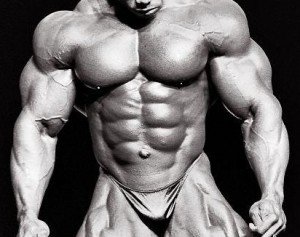>
“To help you graduate from beginner to advanced-level bodybuilder, consider the six supplements discussed in this article. Consider these essential nutrients that should be part of the ideal nutrition plan”.
Iron
Pregnant women, babies and mass-seeking bodybuilders need iron to grow. Iron is important for the production of red blood cells, which help deliver oxygen to muscles. A lack of iron can lead to fatigue, a drop-off in appetite and less than optimal muscle recovery. Precontest bodybuilders have to be especially aware of iron intake. Many engage in up to two hours of cardio per day to strip off excess bodyfat. Unless adequate amounts of iron are consumed, such heavy bouts of aerobic exercise will likely lead to extreme fatigue and overtraining. When you hit a state of overtraining, you can kiss your progress good-bye.
Food sources: Red meat, tomatoes, beans, oatmeal and most veggies
Suggested dose for bodybuilders: Red meat daily, or an iron supplement yielding up to eight milligrams (mg) a day
Copper
Copper is not often recommended for bodybuilders, yet it ought to be. Besides helping to form red blood cells, copper supports the production of superoxide dismutase (SOD), the body’s most potent internal scavenger of free radicals. Free radicals are the natural byproduct of heavy training. However, overtraining or poor nutrition can create a state where free radicals not only damage muscle cells but can impair the immune system, leading to poor muscle recovery.
Food sources: Shellfish, fish, organ meats and legumes
Suggested dose for bodybuilders: 2-3 mg daily
B12
Vitamin B12 helps cells divide, which is an essential part of the growth process. Strict diets that are low in calories — especially precontest diets that lack red meat — can result in low levels of B12, leading to fatigue. This in turn can contribute to a state of overtraining. When overtraining occurs, a hormonal imbalance sets in that not only prevents gains in mass, but it can also cause a disproportionate amount of muscle to be shed while dieting.
Food sources: Red meat
Suggested dose for bodybuilders: Up to 15 micrograms daily
Arginine
Arginine increases the natural release of growth hormone (GH). Unless you’ve been living under a rock, you probably already know that increasing GH can offer bodybuilders tremendous benefits. First, GH supports the immune system, and a strong immune system is paramount to muscle recovery and muscle growth. Second, GH helps increase mass by boosting the uptake of amino acids into muscle. In addition, it helps burn bodyfat. Bodybuilders can benefit by taking six to eight grams (g) of arginine before training and another 6-8 g before bed. These are the two occasions when GH levels rise, and supplementing with arginine can enhance this natural burst in GH. Mass seekers can add 2 g to the posttraining meal because arginine can also boost insulin levels when combined with a postworkout meal of 50 g each of protein and carbs. Elevated insulin levels after training enhance the recovery phase, reversing muscle breakdown, and increase the storage of muscle glycogen.
Food sources: Red meat, fish and fowl
Suggested dose for bodybuilders: 12-18 g, in addition to food sources from animal proteins
Potassium
Potassium helps muscles contract and also plays a big role in helping the body convert carbohydrate intake into muscle glycogen, the reserve fuel tank within muscles and the liver that the body uses while you’re training. In essence, a low potassium intake can short-circuit your ability to carb-load your muscles. Since potassium is stored within muscles, it’s speculated that — like creatine and glutamine — it adds to the total amount of water that muscle can retain and store. More water in muscles facilitates an anabolic environment, causing greater muscle growth.
Food sources: Lean meat, yogurt, bananas and potatoes Suggested dose for bodybuilders:
2-3 g daily split over five or six meals
Acetyl L-Carnitine
Bodybuilders often use Tribestan and androstenedione-derived products hoping to bump up testosterone levels, because more testosterone can be translated into greater mass gains. Acetyl L-carnitine (not to be confused with the fat-burner carnitine) can contribute to stable and even higher testosterone levels in athletes who might be walking a tightrope in terms of overtraining. Too much training volume without adequate rest days can cause drops in testosterone levels. Studies also show that acetyl L-carnitine may help improve the uptake of glucose by muscles. This is important because improved glucose transport into muscles could translate into greater muscle mass and possibly less body fat.
Tags: six-pack
This entry was posted
on Thursday, May 6th, 2010 at 12:21 pm and is filed under NUTRITION.
You can follow any responses to this entry through the RSS 2.0 feed.
You can leave a response, or trackback from your own site.

